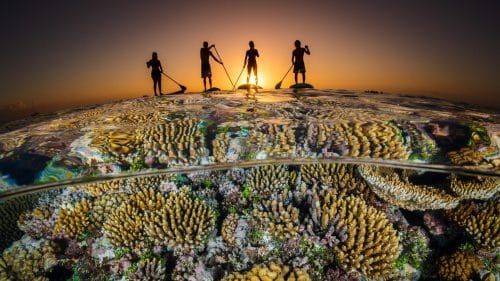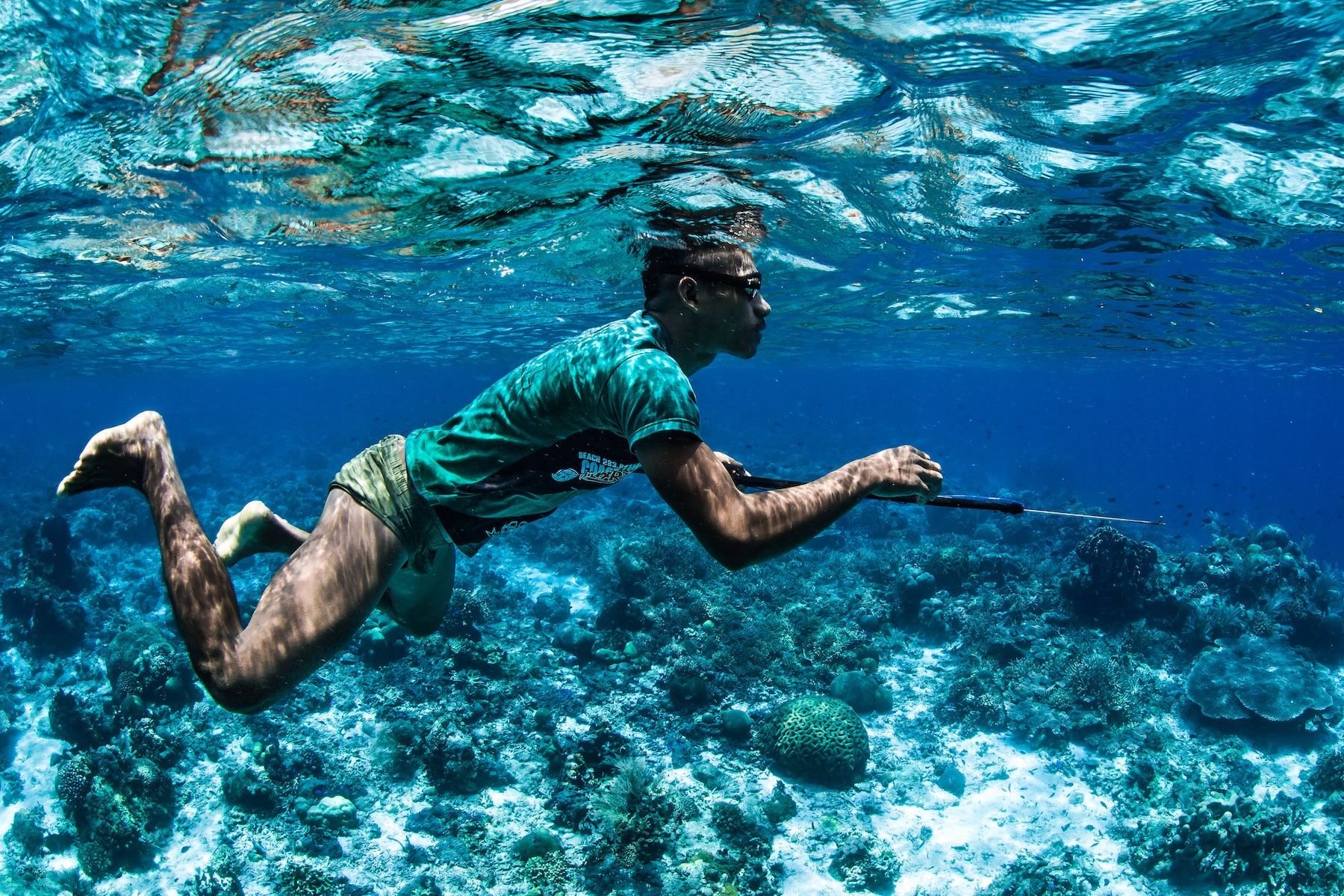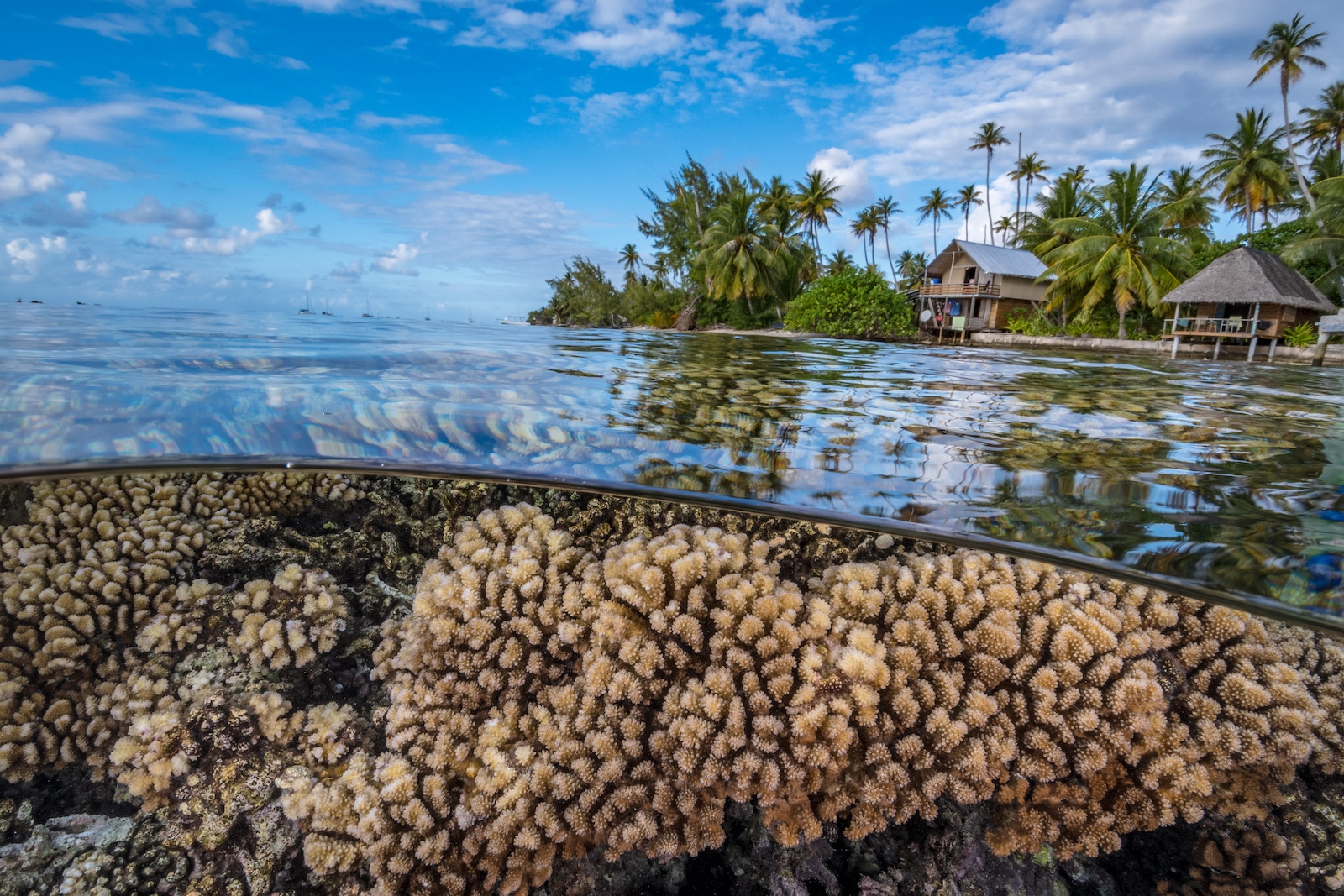Ocean Management: how to balance economy and nature

The ocean holds 99% of all habitable space on the planet, it makes up almost 71% of the Earth’s surface, and it is by far the biggest ecosystem on the planet.
Besides regulating the climate on a global scale, producing more than half the oxygen we breathe and being a carbon sink, the ocean plays a vital role in the world’s economy and, if we want to build a more sustainable future, we need to improve the way we manage it and use its resources.
In this article, we’ll explore the complexity of the ocean’s role in our lives, learn about its economy, and explain the concept of integrated ocean management, a way of taking control of our impact on the planet and all its inhabitants.
The complex ecosystem of the Ocean
As we mentioned above, our ocean, which is formally divided into five main ocean basins (Pacific, Atlantic, Indian, Arctic and Southern) function as the planet’s life support system.
Nowadays, unfortunately, these bodies of water are facing a massive threat, mainly given by ocean pollution caused by oil spills, littering and improper manufacturing plants.
To save our planet and maintain the ocean ecosystem balance, we therefore need to find and implement new ways of managing its resources.

Why is the ocean so important?
Here are some ocean facts that might surprise you, and certainly convince you of the importance of developing a sustainable relationship with our blue planet.
- Not only is the ocean the largest ecosystem on Earth, it also contains a stunning 94% of all the planet’s wildlife.
- The ocean contains more than 97% of the water on the planet, covering about 71% of the Earth’s surface.
- Tiny marine plants that live on the ocean’s surface (Phytoplankton) produce roughly 50-80% of the oxygen we breathe through photosynthesis.
- The ocean is what we call a carbon sink: it absorbs huge amounts of CO2, which is one of the major causes of climate change.
- By moving heat around the planet, ocean regulates the climate on a global scale. Warm currents move towards the Poles, cool down, and circle back, affecting the Earth’s weather patterns.
- Ocean pollution also harms human beings. Microplastics and toxic contaminants can be carcinogenic and impact our body’s endocrine system, causing serious disorders and disease. These are often transferred to humans through the consumption of seafood.
Cleaning the ocean and saving marine ecosystems is therefore of the utmost importance if we want to reduce the impact of climate change, safeguard our health and that of the whole planet to work towards a more sustainable future.
What is the Ocean economy?
Ocean economy is the sum of economic activities carried out by ocean-based industries, together with the assets and resources provided by marine ecosystems. What are the main areas, and how do they affect the ocean?
Food
The sea is a major source of food for people around the world, and global food demand is rising. Food from the ocean is produced from wild fisheries and farmed species (mariculture), and it accounts roughly for 17% of the global production of meat.
Food from the sea contains protein, bioavailable micronutrients and essential fatty acids, which are particularly important in low-income, food-deficit countries.
Energy
Marine energy resources, like ocean waves, tides, currents, salinity and temperature gradients, can be used to produce renewable energy. In the last decade, there has been huge progress in technologies to develop marine energy: the ocean and its waters could be the key to develop a more sustainable future.

Transportation
The ocean contains all the most important trading routes of our planet. 90% of global trade currently uses sea routes, and this is a source of jobs for millions of people. Maritime transport is also part of a whole cluster of economic activities that create economic value added.
Recreation
Tourism and recreation are another big sector of the economy linked to the ocean and coastal ecosystems. They are based on natural, cultural and historical resources and support islands and coastal communities.
New Economic Activities
In recent years, the ocean has been explored more and more, and new industries have flourished. These include extracting medicines components, algae and seaweed farming for food and fuel, and the mining of new raw material.

Integrated Ocean Management
Nowadays, our needs for food, energy, transportation, recreation and other ocean-based services are rapidly increasing, which leads to an unprecedented growth of the ocean economy: existing ocean industries are expanding, and new ones are appearing.
It is essential to tackle this situation with long-term ocean health and sustainability in mind. This calls for an integrated approach to ocean management, so that we can find a balance between production and protection, human beings and ocean.
A roadmap for actions to take
We need better governance of human activities in the ocean space, but achieving and sustaining a sustainable ocean economy is possible.
One of the keys of Integrated Ocean Management is seeing the ocean as the whole, living ecosystem it is, and implementing, integrating and balancing different ocean activities to optimize its economy without tipping the balance and health of marine ecosystems.
Innovation in science and technology already plays a key role in building a more sustainable ocean economy, now and for the future.
Reduce Ocean pollution
First, we need to put all our efforts into stopping litter and plastic from entering the ocean. In addition to reducing our use of plastic (and specifically single-use items), we should support and incentivize the production and use of viable and sustainable alternatives to plastic.
If you want to learn more about plastic pollution and how to address it, read our article here.

Manage seafood production sustainably
In order to create sustainable growth in this industry, we must work towards the implementation of more transparent global ocean governance and supply chains, which could in turn strengthen opportunities for local communities and coastal towns. One of the main actions to take would be increasing monitoring, control and surveillance to avoid illegal and unregulated fishing, an activity that can have disastrous effects on marine ecosystems. It is also essential to avoid overfishing ad harmful fishing practices, as well as creating policies and management to minimize the environmental impacts of aquaculture.
Mitigate climate change
As previously mentioned, climate change is deeply connected with the way we treat our ocean. The focus in the following years will be on:
Decarbonizing maritime transport
Maritime transport is a big source of pollution: sea shipping is responsible for approximately 30% of total global NOx emissions, which have been linked to thousands of premature deaths in coastal areas.
It is therefore essential to work towards reducing shipping emissions effectively. The International Transport Forum report “Decarbonizing maritime transport” describes possible decarbonization pathways that use different measures to work towards that goal.
Developing Clean Ocean-based Energy
The revolution of ocean-based renewable energy has begun, aiming to increase the investments to enable the adoption of new technologies. Of course, with keen attention on minimizing the impact on marine ecosystems.

Promoting sustainable tourism
Achieving a sustainable ocean tourism able to withstand and overcome future crises will require strategic public and private investment. This will include promoting nature-based solutions in tourism infrastructures, implementing the reinvestment of tourism-generated revenue into local communities and encouraging transparency and sustainability in all activities.
Avoid biodiversity loss and protecting coastal waters
Supporting the protection and conservation of coastal waters and marine ecosystems is another way of promoting environmentally solid economic development.
This can include the creation and support of marine protected areas, developing nature-based and sustainable infrastructure and help local communities in the management of marine activities.
Together, we can all work towards the creation and development of a sustainable and holistic ocean economy.
References
https://www.nature.com/articles/s41559-020-1259-6
https://www.journals.elsevier.com/ocean-and-coastal-management
https://www.wri.org/insights/integrated-ocean-management-5-success-stories-ocean-health-and-wealth
https://www.oceanpanel.org/blue-papers/integrated-ocean-management
https://www.forumsec.org/ocean-management-conservation/
https://www.oecd.org/ocean/topics/ocean-economy/
https://www.nature.com/articles/d41586-020-03303-3
https://www.nature.com/articles/s41586-020-2616-y
https://www.energy.gov/eere/water/marine-energy-blue-economy


